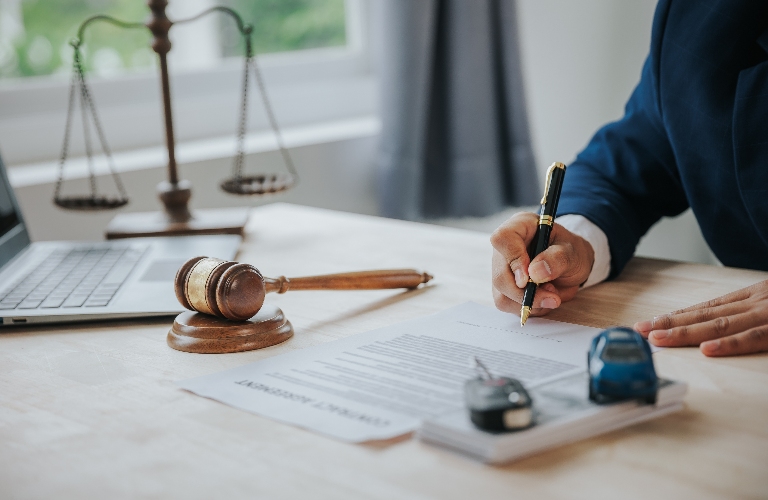What Happens If Both Drivers Are at Fault in a Florida Car Accident?
Car accidents are rarely black and white. In many cases, fault is shared between multiple parties. If both drivers are partially responsible for a car accident in Florida, the legal and financial outcomes depend on the state’s comparative negligence laws. Understanding how fault is apportioned and how it affects compensation is essential for anyone involved in a multi-party collision.
At High Stack Law, our dedicated Florida car accident attorneys can help you figure out how to handle your case, even if both drivers might be partially at fault for an accident. Schedule a consultation to learn more about how we can help.
Florida’s Comparative Negligence Rule
Florida follows a modified comparative negligence system. Under this rule, each party’s degree of fault is assessed and used to determine how much compensation they can recover. As of March 2023, Florida law bars recovery if a party is found to be more than 50% at fault for the accident.
This means:
- If you are 50% or less at fault, you may still recover damages.
- If you are 51% or more at fault, you cannot recover compensation from the other party.
This system replaces Florida’s previous pure comparative negligence model, which allowed recovery even if a party was 99% at fault.
How Fault Is Determined
Fault is typically established through:
- Police reports
- Witness statements
- Traffic camera footage
- Accident reconstruction
- Insurance investigations
Each driver’s actions leading up to the crash are analyzed. For example, if one driver was speeding and the other failed to yield, both may share responsibility. The insurance companies or courts assign a percentage of fault to each driver based on the evidence.
Impact on Insurance Claims
Florida is a no-fault insurance state, meaning drivers must carry Personal Injury Protection (PIP) coverage. After an accident, each driver’s own PIP insurance pays for medical expenses and lost wages, regardless of fault. However, PIP coverage is limited and does not compensate for pain and suffering.
To pursue additional damages, such as for serious injuries or property damage, drivers must step outside the no-fault system and file a claim against the other party. In cases where both drivers are at fault, the comparative negligence rule will apply to determine how much each party can recover.
What If Fault Is Split 50/50?
If both drivers are equally at fault:
- Each may recover 50% of their damages from the other party.
- Each party’s recovery is reduced by their own share of fault.
- Insurance companies may negotiate settlements based on the shared liability.
This type of outcome is common in intersection accidents, lane-change collisions, and rear-end crashes where both drivers contributed to the incident.
Legal Considerations
If fault is disputed or unclear, litigation may be necessary. In court, a jury or judge will evaluate the evidence and assign fault percentages. Legal representation is crucial in these cases, especially when serious injuries or significant damages are involved.
Florida’s modified comparative negligence rule makes it essential to build a strong case that minimizes your share of fault. Even a small shift in fault percentage can dramatically affect the compensation you receive.
Steps to Take After a Shared-Fault Accident

- Seek medical attention immediately, even if injuries seem minor.
- Report the accident to law enforcement and obtain a copy of the police report.
- Notify your insurance company and provide accurate details.
- Document the scene with photos, videos, and witness contact information.
- Consult a Florida personal injury attorney to evaluate your case and protect your rights.
Seek Assistance from a Highly Qualified Florida Car Accident Lawyer
When both drivers are at fault in a Florida car accident, the outcome hinges on the modified comparative negligence rule. Drivers who are 50% or less responsible may still recover damages, but their compensation will be reduced proportionally. Understanding how fault is assigned and how it affects your claim is critical to protecting your financial interests after a collision.
Consult a Florida car accident attorney at High Stack Law for help with your case. Contact us today for a consultation of your case.
